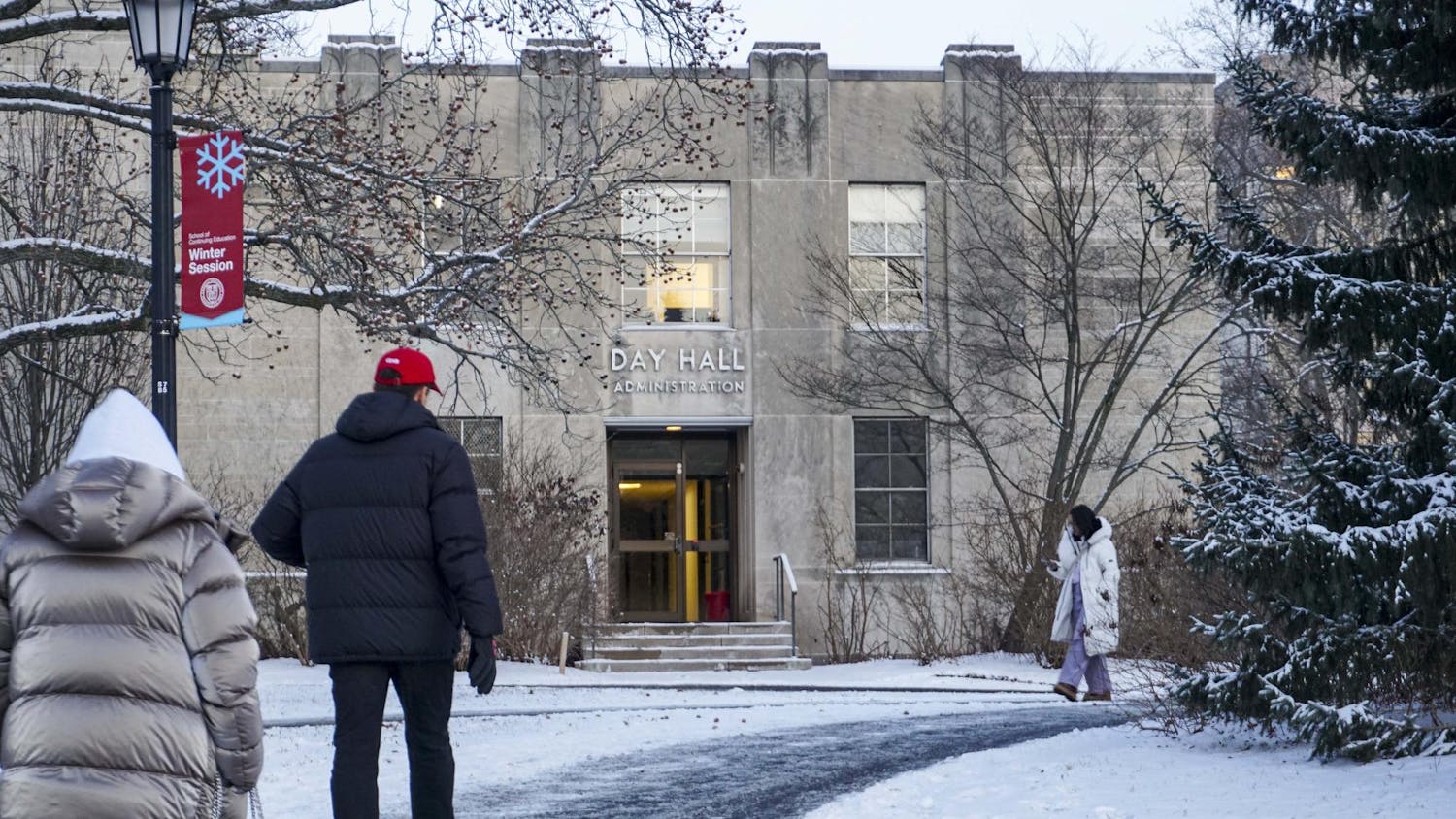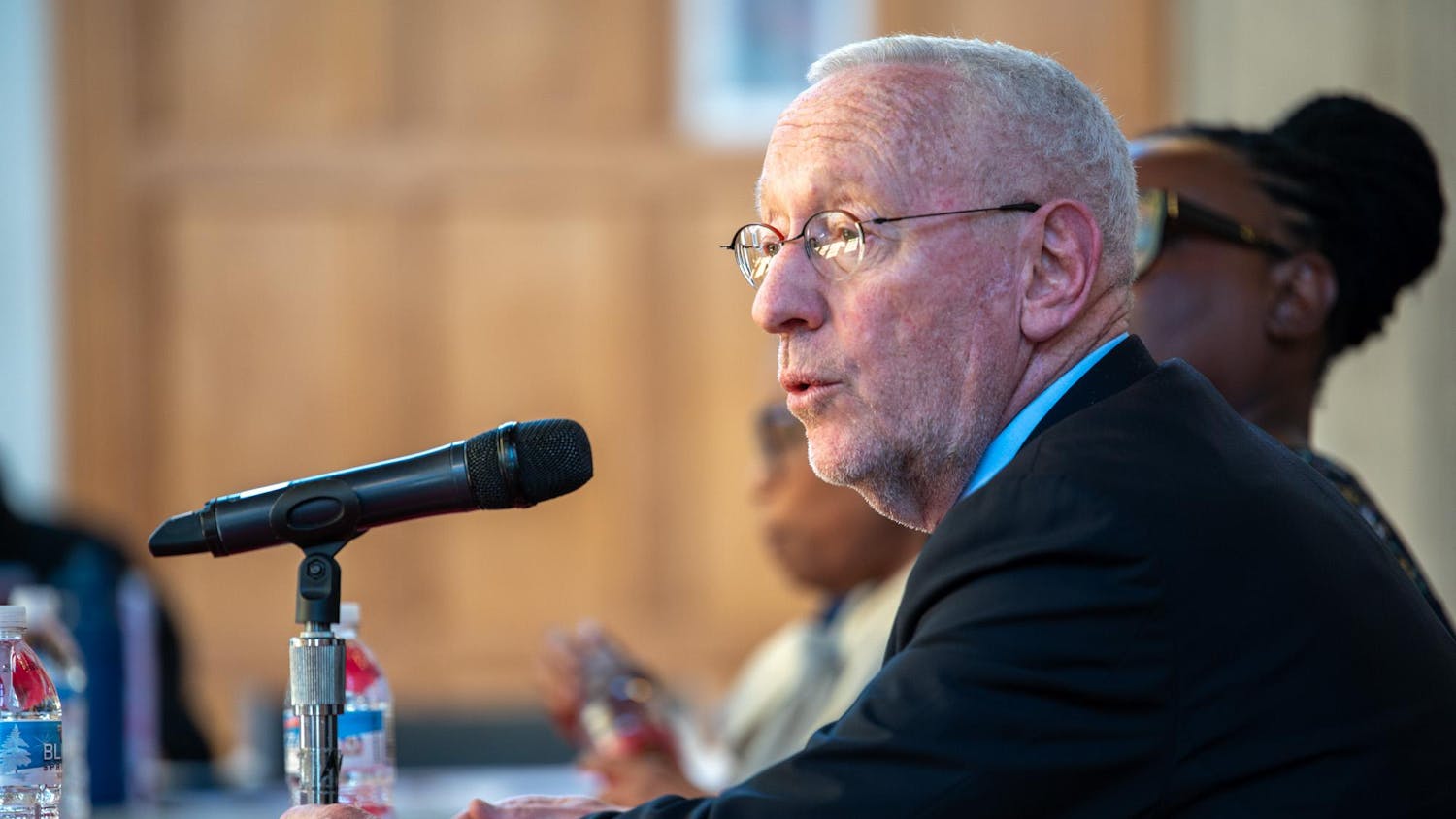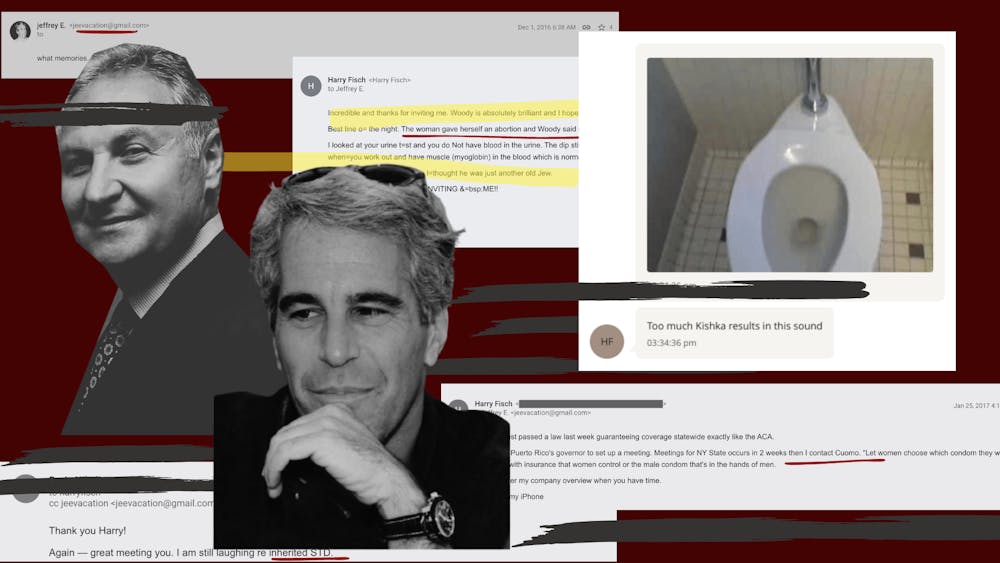On Tuesday, the Mario Einaudi Center for International Studies hosted Rahul Gandhi in conversation with Prof. Kaushik Basu, economics — exploring how governments can preserve democracy in the face of the pandemic, power vacuums and increasing partisanship.
Gandhi is a prominent member of the Lok Sabha, the lower house of India’s parliament, and previously served as president of the Indian National Congress party. He is the great-grandson of India’s first prime minister Jawaharlal Nehru, a position which his grandmother and father have also held.
The discussion was open to the Cornell community and was also livestreamed on Facebook. The virtual format has allowed the Cornell South Asia Program to broadcast its programming to a wider audience and for the event to be covered by multiple Indian media outlets.
“It’s not only people in Ithaca,” said Prof. Daniel Bass, anthropology, who serves as manager of the South Asia Program. “We’ve also had people attending our events from all across South Asia as well as Europe and Australia.”
The event was organized by the Einaudi Center’s South Asia Program and came about thanks to Basu. When Prof. Basu called to congratulate him for his Feb. 12 speaking engagement at the University of Chicago Institute of Politics, Gandhi unexpectedly offered to speak at Cornell.
“We immediately decided to take him up on his offer,” said Prof. Iftikhar Dadi, history of art and the current director of the South Asia Program. “It would give a chance for Cornellians to speak with a major leader in South Asia.”
As the former leader and prominent member of the Congress party — the opposition to the incumbent Bharatiya Janata Party — Gandhi’s presence at Cornell has generated significant attention from across the Indian political spectrum. Particularly since BJP Prime Minister Narendra Modi’s wins in 2014 and 2019, political tensions in the world’s largest democracy are at their highest in decades. However, Dadi emphasized that the event is primarily meant for students and faculty to learn and engage.
“This is not a political rally. It is a university setting,” Dadi said. “The university is a place for free and frank debate.”
Basu, who previously served as India’s Chief Economic Advisor, posed questions to Gandhi on topics ranging from the ongoing farmer’s protest, economic development and foreign policy.
The conversation kicked off on the topic of democracy, one of the Einaudi Center’s research priorities. Basu questioned Gandhi on the state of democracy in India.
“Modern democracies function because there is an institutional balance in the country,” Gandhi said.
He expressed concerns that Indian institutions, including the judiciary, the bureaucracy and the election commission, were all being permeated by BJP ideology.
“If I don’t have [institutional] support I literally can’t do my job,” Gandhi said. “Frankly, I didn’t realize how profound this is until I’m actually faced with it.”
Professor Basu also questioned Gandhi on India’s relationship with the U.S and China.
“A superpower is rising. There's just no question about that,” said Gandhi, referring to China. “And the hope is that the two superpowers do not collide.”
Gandhi also expressed a desire for the U.S to play a larger role in Asia.
“I can see that there is a clear Chinese vision. I don’t agree with elements of it, but it’s there,” he said. “The United States requires a global vision. We’re a friend of the United States, but I don’t see that vision.”
The discussion was followed by a Q&A session, where Gandhi was asked questions from Cornell students and faculty. Prof. Durba Ghosh, history, ended the session with a question going back to the first topic of institutions — specifically institutions of higher education, which she described as critical to sustaining democracy and which have recently come under attack in India.
“The whole [Indian] education system is being targeted,” Gandhi answered. “Absolutely, you need to reclaim this space. What is going on is essentially an attack on equality.”
Basu concluded the event by asking Gandhi about his vision for the Congress party, taking into account it’s losses in the last two general elections.
“Gather the resistance,” Gandhi replied. He expressed hope that the party could transform itself and work with opposing parties.
“We’re no longer fighting for power,” Gandhi said. “We’re fighting for India.”











